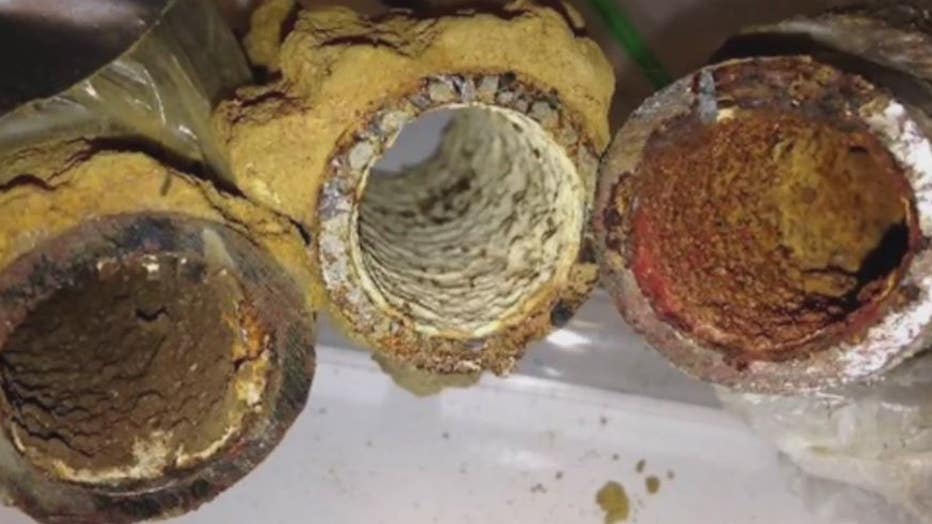Detroit's plan to replace lead water lines includes new tech that saves millions

New technology to detect lead water lines in Detroit will save millions
As drinking water disasters in Flint and Benton Harbor get national attention, Detroit is setting out a plan to replace lead water lines with new technology from a Michigan company that the city says will save millions.
DETROIT (FOX 2) - As drinking water disasters in Flint and Benton Harbor get national attention, Detroit is setting out a plan to replace lead water lines with new technology from a Michigan company that the city says will save millions.
Detroit Water Sewerage Department Deputy Palencia Mobley estimates it could cost around $450 million to replace lead service lines in the city. That's money that the city doesn't have, but the work has to be done.
Michigan's lead and copper rules are the most stringent in the country and an estimated 80,000 lead service lines in Detroit must be replaced by 2040.
The problem is, they don't know which houses have lead service lines. They have to figure it out by 2025.
DWSD Project Manager David Fielder says they would have had to visually inspect every single connection.
"That would have required excavating in the yard of every home in the city of Detroit," Fielder said.
That would have been 300,000 homes to dig up and inspect.

Lead water lines.
Most cities don't have good records of what service lines are made of. In many older homes, it could be lead but it could also be copper or neither and the only way to know would be to dig them up.
"Doing so at around $500 or $600 apiece would have cost the city millions and millions of dollars," Fielder said.
So the city is turning to a Michigan-based company.
The development of data-driven software is helping cities determine what houses most likely have lead service lines before they dig.
The company Blue Conduit was founded by scientists working on the ground in Flint during the crisis there and they're now working in Benton Harbor, Toledo, Ohio, Trenton, New Jersey, and dozens of other cities to identify the likelihood of lead lines before the digging starts.
Michael McDaniel is the director of government and strategy at Blue Conduit said it could save the city of millions and has already saved millions for the city of Flint.
"It saves time. It saves millions of dollars. It's estimated we'll save the city of Detroit over $150 million and we saved millions and millions of dollars for the city of Flint," McDaniels said.
Blue Conduit in Detroit is being paid for with grants from the state's department of environment, great lakes, and energy as well as the Kresge Foundation and the Rockefeller Foundation.

Detroit residents can also call 313-267-8000 to request a lead and copper test.

